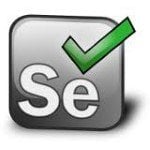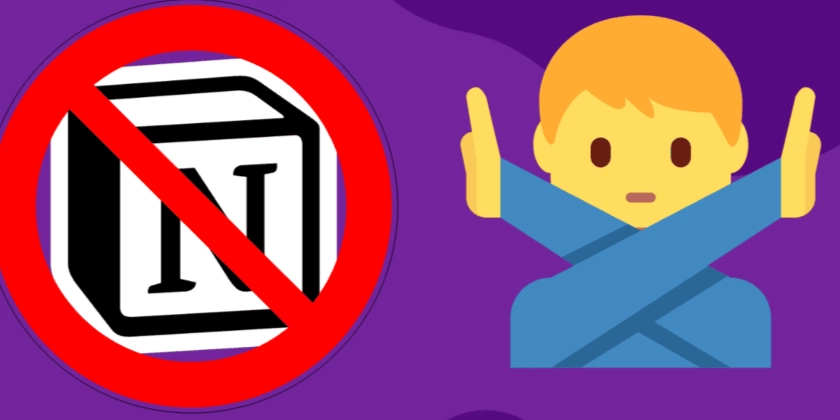Top 6 Benefits of Using AI for Web Scraping in Competitive Industries
If you’re a developer, you know how important it is to have up-to-date data. Whether it’s checking market trends, studying competitors, or gathering user feedback, the right data can give you an advantage. But collecting it manually? It’s slow, exhausting, and often leads to mistakes. That’s where AI for web scraping comes in. This smart tool automates the process, making it faster, simpler, and more accurate. Let’s explore five ways AI can make web scraping better for fast-moving industries. Top 6 Benefits of Using AI for Web Scraping 1. Automated Data Collection Saves Time and Resources For developers, keeping up with the demand for new data can be tough. AI-powered web scraping makes it simple by automating the process. Instead of collecting data from websites manually, AI tools do it quickly and efficiently. This saves you time, so you can focus on more important work. 2. Improved Accuracy and Reduced Errors Human errors are a significant risk in web scraping. The process may lead to misleading inferences and omit crucial points. Scaper tools, powered by artificial intelligence, are designed to carry out these tasks with accuracy. The more they learn from their past data, the more precise they get, making sure that any information gathered for them is accurate and free of any errors. Whether to scrape product prices or customer feedback, AI always gets it right. 3. Scalability for Large-Scale Data Collection As your business grows, your need for data will grow too. Traditional web scraping methods might struggle to handle large amounts of data, especially if you’re tracking hundreds or thousands of websites. AI for web scraping can easily manage large-scale data collection without losing speed or accuracy. Whether you're monitoring competition pricing, receiving client feedback, or analyzing market trends from different sources, AI can manage it all. 4. Adaptability to Changing Websites Websites are constantly evolving. They change their designs, add new parts, or change their layout. Traditional scraping techniques break when these changes happen, and you end up with incomplete or outdated data. AI-powered tools are more flexible and can respond to these changes automatically. They "learn" from new website architecture, ensuring that your scraping process runs smoothly and consistently, no matter how often a website changes. This adaptability is critical in competitive businesses where keeping up with the latest knowledge is key. 5. Actionable Insights Through Advanced Data Processing AI does not just scrape data; it also processes and organizes it in ways that are easier for developers to use. Advanced machine learning algorithms allow AI tools to take raw data and extract meaningful insights from it. For example, AI can identify trends in customer sentiment, and changes in competitor strategy, or even predict future market movements based on historical data. In this way, instead of giving you numbers, AI for web scraping helps you understand what the data means and how you can use it to drive your business decisions. 6. Cost-Effectiveness for Businesses Although the price for AI-based web scraping may seem to have an upfront cost, it is later saved by a reduction in the expenses of manual gathering and errors generated in the same. The reduction of repetitive tasking saves resources that can instead be allocated to the activities generating revenue. In addition, AI processing at scale does not require costly human labor nor the threat of taking time to redo it because of errors. For businesses, especially those industries that compete fiercely, it is a long-term savings combined with an increased ROI. How to Get Started with AI for Web Scraping If you're new to AI-powered web scraping, getting started can be overwhelming. However, the procedure can be broken down into a few easy steps: Choose the Right Tools: There are a lot of AI-powered scraping solutions. They include Scrapy, BeautifulSoup, and even SERPHouse. The best tool for your project will depend on how complex it is and the sort of data you're trying to gather. Define Your Objectives: Clearly outline the type of data you will be collecting whether it is the competitor's pricing, market trends, or consumer opinions. This is sure to help in fine-tuning your scraping process and ensuring the quality of the collected data. Start Small, Scale Gradually: Start with a small project to test the capabilities of the AI tool. Then, gradually develop it to process large sets of data and complex scraping tasks. As you go along, the AI tool will "learn" your preferences and become more effective. Ensure Ethical Scraping Practices: Be mindful of website terms of service and avoid scraping private or sensitive information. Ethical scraping assures compliance while also protecting your company's brand. The Future of AI in Web Scraping: What's Next

If you’re a developer, you know how important it is to have up-to-date data. Whether it’s checking market trends, studying competitors, or gathering user feedback, the right data can give you an advantage. But collecting it manually? It’s slow, exhausting, and often leads to mistakes. That’s where AI for web scraping comes in. This smart tool automates the process, making it faster, simpler, and more accurate. Let’s explore five ways AI can make web scraping better for fast-moving industries.
Top 6 Benefits of Using AI for Web Scraping
1. Automated Data Collection Saves Time and Resources
For developers, keeping up with the demand for new data can be tough. AI-powered web scraping makes it simple by automating the process. Instead of collecting data from websites manually, AI tools do it quickly and efficiently. This saves you time, so you can focus on more important work.
2. Improved Accuracy and Reduced Errors
Human errors are a significant risk in web scraping. The process may lead to misleading inferences and omit crucial points. Scaper tools, powered by artificial intelligence, are designed to carry out these tasks with accuracy. The more they learn from their past data, the more precise they get, making sure that any information gathered for them is accurate and free of any errors. Whether to scrape product prices or customer feedback, AI always gets it right.
3. Scalability for Large-Scale Data Collection
As your business grows, your need for data will grow too. Traditional web scraping methods might struggle to handle large amounts of data, especially if you’re tracking hundreds or thousands of websites. AI for web scraping can easily manage large-scale data collection without losing speed or accuracy. Whether you're monitoring competition pricing, receiving client feedback, or analyzing market trends from different sources, AI can manage it all.
4. Adaptability to Changing Websites
Websites are constantly evolving. They change their designs, add new parts, or change their layout. Traditional scraping techniques break when these changes happen, and you end up with incomplete or outdated data. AI-powered tools are more flexible and can respond to these changes automatically. They "learn" from new website architecture, ensuring that your scraping process runs smoothly and consistently, no matter how often a website changes. This adaptability is critical in competitive businesses where keeping up with the latest knowledge is key.
5. Actionable Insights Through Advanced Data Processing
AI does not just scrape data; it also processes and organizes it in ways that are easier for developers to use. Advanced machine learning algorithms allow AI tools to take raw data and extract meaningful insights from it. For example, AI can identify trends in customer sentiment, and changes in competitor strategy, or even predict future market movements based on historical data. In this way, instead of giving you numbers, AI for web scraping helps you understand what the data means and how you can use it to drive your business decisions.
6. Cost-Effectiveness for Businesses
Although the price for AI-based web scraping may seem to have an upfront cost, it is later saved by a reduction in the expenses of manual gathering and errors generated in the same. The reduction of repetitive tasking saves resources that can instead be allocated to the activities generating revenue. In addition, AI processing at scale does not require costly human labor nor the threat of taking time to redo it because of errors. For businesses, especially those industries that compete fiercely, it is a long-term savings combined with an increased ROI.
How to Get Started with AI for Web Scraping
If you're new to AI-powered web scraping, getting started can be overwhelming. However, the procedure can be broken down into a few easy steps:
- Choose the Right Tools: There are a lot of AI-powered scraping solutions. They include Scrapy, BeautifulSoup, and even SERPHouse. The best tool for your project will depend on how complex it is and the sort of data you're trying to gather.
- Define Your Objectives: Clearly outline the type of data you will be collecting whether it is the competitor's pricing, market trends, or consumer opinions. This is sure to help in fine-tuning your scraping process and ensuring the quality of the collected data.
- Start Small, Scale Gradually: Start with a small project to test the capabilities of the AI tool. Then, gradually develop it to process large sets of data and complex scraping tasks. As you go along, the AI tool will "learn" your preferences and become more effective.
- Ensure Ethical Scraping Practices: Be mindful of website terms of service and avoid scraping private or sensitive information. Ethical scraping assures compliance while also protecting your company's brand.
The Future of AI in Web Scraping: What's Next?
AI for web scraping is already reshaping how data is collected and analyzed in any business. Things are even exciting as we take a peek at the future that AI and its related technology - machine learning continue to develop towards better improvements for accuracy, efficiency, and also intelligence in web scraping tools.
In the future, we might see:
- Increased Automation: Expect AI systems to do even more complex jobs, like real-time sentiment analysis or predictive analytics, with minimal human intervention.
- Better Integration with Other Tools: AI-based web scraping solutions are likely to be even more integrated with other business tools such as CRM systems, marketing automation, and analytics dashboards so that the flow of data throughout your entire business ecosystem is smooth.
- Smarter Decision-Making: With its development, more advanced online data scraping technologies would not only bring in data, but also valuable insights, forecasting, and even recommendations, for the organization to make better, quicker decisions.
Conclusion
Data is the winning key in the competitive market arena. The better and more efficiently you collect and analyze data, the closer you get to making judgments based on current scenarios, monitoring how others are proceeding, and establishing where the action is unfolding with new trends. AI for web scraping is more of a game changer, meaning when you make proper deployment for your business to have great results.
The amount of information-gathering activities involving pricing data collection, monitoring on social media, and market research can be extracted using AI. So, to stay ahead as a developer within a rapidly advancing, data-related environment, developing AI-based web scraping projects is the thing for you.




















